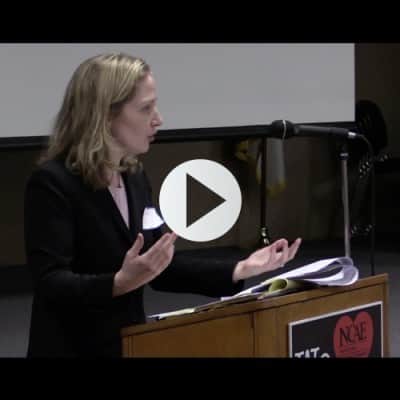
In the year following a general election, North Carolina’s General Assembly convenes for what is called “a long session,” a session beginning in January and in theory adjourning in June — though long sessions have been known to run as late as August or September. For special interest groups, state agencies, schools, universities, and others dependent on state funding, long sessions are critical primarily because the General Assembly will adopt a two-year budget.
As predictable as farmers planting crops in the spring, in advance of a long session, special interest groups issue their legislative priorities (or wish lists) in January in advance of, or coinciding with, the convening of the General Assembly in an effort to push their agendas. Our legislature convened on January 14, 2015.
Over the course of the past month, a bumper crop of educational wish lists coming from a variety of organizations have been released (see below). The wish lists cover the educational waterfront, but vary dramatically depending on the primary self-interest of the groups issuing them.
The plethora of wish lists coming from different organizations enables legislators to pick and choose among dozens of “organizational priorities.” Regardless of what the General Assembly decides to do with or for education, they will be responding to the priorities of one group or another.
Logic would suggest that if all of the groups ostensibly working for better schools would come together and agree on a common set of priorities that those priorities would stand a better chance of gaining legislative support. In fact, for almost a decade, five organizations – North Carolina Citizens for Business and Industry (the former name of the State Chamber of Commerce), the School Boards Association, the NCASA, the Public School Forum of NC, and the Low Wealth Schools Consortium – would annually reach a consensus on a common set of educational priorities. Working together under the banner of the Education: Everybody’s Business Coalition, the organizations’ lobbyists met daily, coordinated their lobbying efforts, and carried the same message in the General Assembly.
The scene today, however, is much different. The Education: Everybody’s Business Coalition disbanded years ago. Today, instead of major educational and business groups speaking with one voice, different groups focus narrowly on their individual agendas and competition prevails among organizations to see which group’s priorities will prevail in the legislative process. That does not bode well for education in the upcoming long session of the General Assembly.
Below is a list of the agendas EdNC knows about. If your organization has education priorities for this legislative session, send them to info@ednc.org.
2015 Agendas
NC Association of School Administrators




